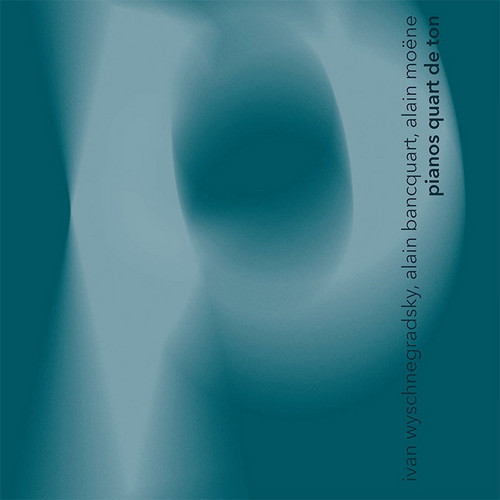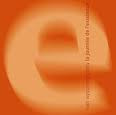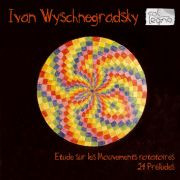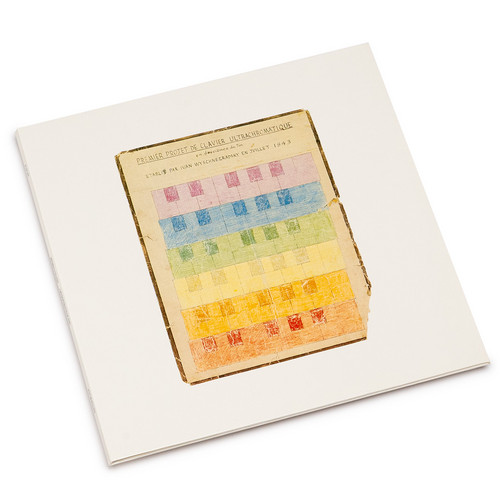Ivan Wyschnegradsky
Greatly influenced by Scriabin as a young man, Vïshnegradsky had a mystical vision which made him feel compelled to write music in intervals of less than a half-step.
In 1920, he emigrated to Paris. In 1922, he traveled to Berlin to meet with other quarter-tone composers such as Aloïs Hába, Willy Moellendorf, and Jörg Mager. Plans to collaborate on a quarter-tone piano with Hába were interrupted by visa problems, and he was forced to return to Paris.
During World War II, he entered a sanatorium, and was encouraged to continue composing by Olivier Messiaen upon his release in 1950.
In 1920, he emigrated to Paris. In 1922, he traveled to Berlin to meet with other quarter-tone composers such as Aloïs Hába, Willy Moellendorf, and Jörg Mager. Plans to collaborate on a quarter-tone piano with Hába were interrupted by visa problems, and he was forced to return to Paris.
During World War II, he entered a sanatorium, and was encouraged to continue composing by Olivier Messiaen upon his release in 1950.
a beautiful audio interview
Greatly influenced by Scriabin as a young man, Vïshnegradsky had a mystical vision which made him feel compelled to write music in intervals of less than a half-step.
In 1920, he emigrated to Paris. In 1922, he traveled to Berlin to meet with other quarter-tone composers such as Aloïs Hába, Willy Moellendorf, and Jörg Mager. Plans to collaborate on a quarter-tone piano with Hába were interrupted by visa problems, and he was forced to return to Paris.
During World War II, he entered a sanatorium, and was encouraged to continue composing by Olivier Messiaen upon his release in 1950.
In 1920, he emigrated to Paris. In 1922, he traveled to Berlin to meet with other quarter-tone composers such as Aloïs Hába, Willy Moellendorf, and Jörg Mager. Plans to collaborate on a quarter-tone piano with Hába were interrupted by visa problems, and he was forced to return to Paris.
During World War II, he entered a sanatorium, and was encouraged to continue composing by Olivier Messiaen upon his release in 1950.
a beautiful audio interview
Pianos Quart de Ton
Works for 2 and 4 pianos tuned a 1/4 tone apart, ondes Martenot and cello. Ivan Wyschnegradsky, “4e Fragment symphonique op.38c” for ondes Martenot and 4 pianos (1956), “Ainsi parlait Zarathoustra op.17” for 4 pianos (1930/1936). World premiere recording. “Méditation sur deux thèmes de la Journée de l’Existence op.7” for cello and piano 1/2 ton (1918/1976). Alain Moëne, “De l’ange for 2 pianos” (2015). First performance. Alain Bancquart, “Racines for 4 pianos” (2014). First performance..‘I c…
La journée de l\'existence
“Ivan Wyschnegradsky (1893-1979). "The Day of Existence". Confession of life before life. For orchestra and narrator. Text and music by Ivan Wyschnegradsky. With Mario Haniotis (speaker), Nouvel Orchestre Philharmonique de Radio-France under the direction of Alexandre Myrat. "Ivan Wyschnegradsky had to wait sixty years to hear the first performance of his masterwork, La Journée de l'Existence, which he had conceived and composed beginning in 1916 in Saint Petersburg. And we have had to wait anot…
Étude sur les Mouvements rotatoires / 24 Préludes
The master of partial tones: Ivan Wyschnegradsky continued Scriabin's harmonic principles and (successfully) searched for new tone colors.
Quarter Tone Music - Musique Ultrachromatique
Rare and long deleted double LP focused on the microtonal work of Ivan Wyschnegradsky. The result is one of the most unique concept albums ever created, presenting complex, strange, and beautiful atonalities perhaps only hinted of in the work of Wyschnegradsky's forebears (such as Harry Partch, Alois Haba, Julian Carrillo, Lou Harrison, La Monte Young, Ben Johnston, Terry Riley, Charles Ives, John Eaton, Henk Badings, etc.). This unique release is the opus magnum of Wyschnegradsky, containing th…



